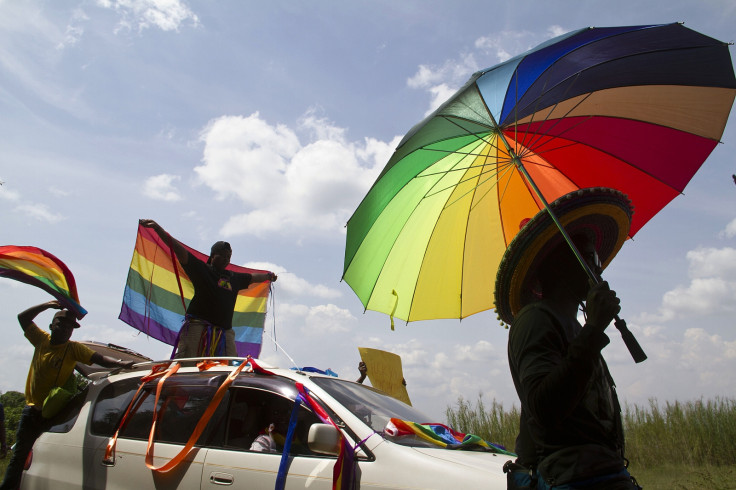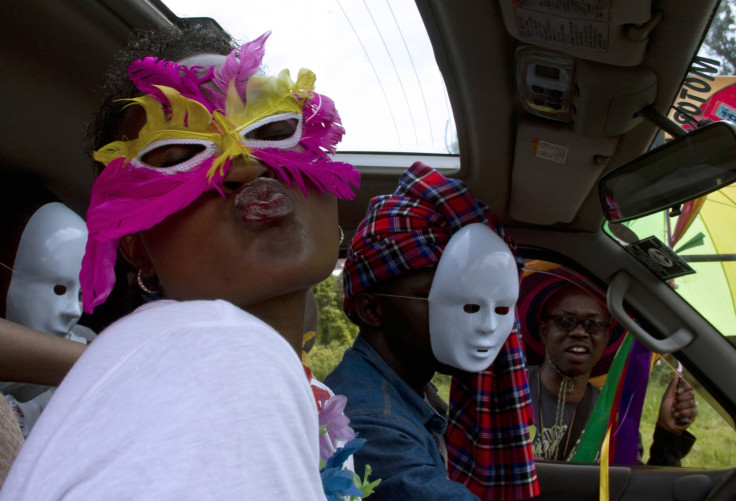Uganda's First Gay Pride Rally Held After Anti-Gay Law Repealed

Uganda's first gay pride rally has been held since the country's anti-homosexual laws were overturned.
Sandra Ntebi, organiser of the rally held on Saturday in Entebbe, 35km from the capital Kampala, said police had granted permission for the invitation-only "Uganda Pride" event.
"This event is to bring us together. Everyone was in hiding before because of the anti-homosexuality law," she said. "It is a happy day for all of us, getting together," she told the Guardian.
Under the law, which was struck down on a technicality on 1 August, six months after coming into force, "proven" homosexuals could be jailed for life.
The government has filed an appeal to the legal ruling, and MPs are petitioning for a new vote on the bill.

Though homosexuality remains illegal in Uganda, it is no longer illegal to promote homosexuality, and Ugandans are no longer obliged to report homosexuals to the authorities.
Activists gathered on the shore of Lake Victoria, dancing, laughing, and holding aloft the rainbow flag of the lesbian, bisexual gay and transgender movement (LBGT)
Rights groups said the law had triggered an increase in assaults on members of the country's LBGT community.
"Since I discovered I was gay I feared coming out, but now I have the courage after the law was thrown out," said Alex Musoke, one of more than 100 people at the event.
Critics suggest that US evangelical groups had a role in fostering a climate of homophobia in the country, which president Yoweri Museveni was seeking to capitalise on ahead of the 2016 presidential elections when he signing the bill into law.
However, the legislation lead to international condemnation, and several aid agencies cut support to the country in response.
Critics believe that Museveni covertly approved the court's decision to repeal the legislation, so as not to be seen to be backing down in face of international pressure.
© Copyright IBTimes 2024. All rights reserved.






